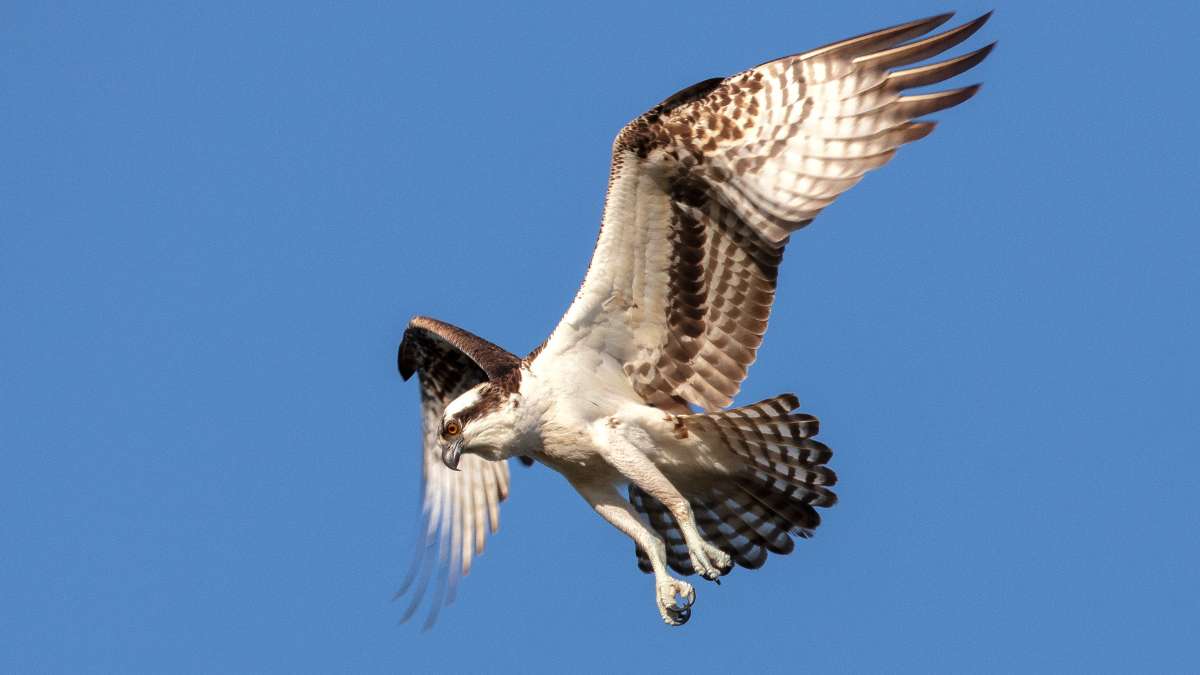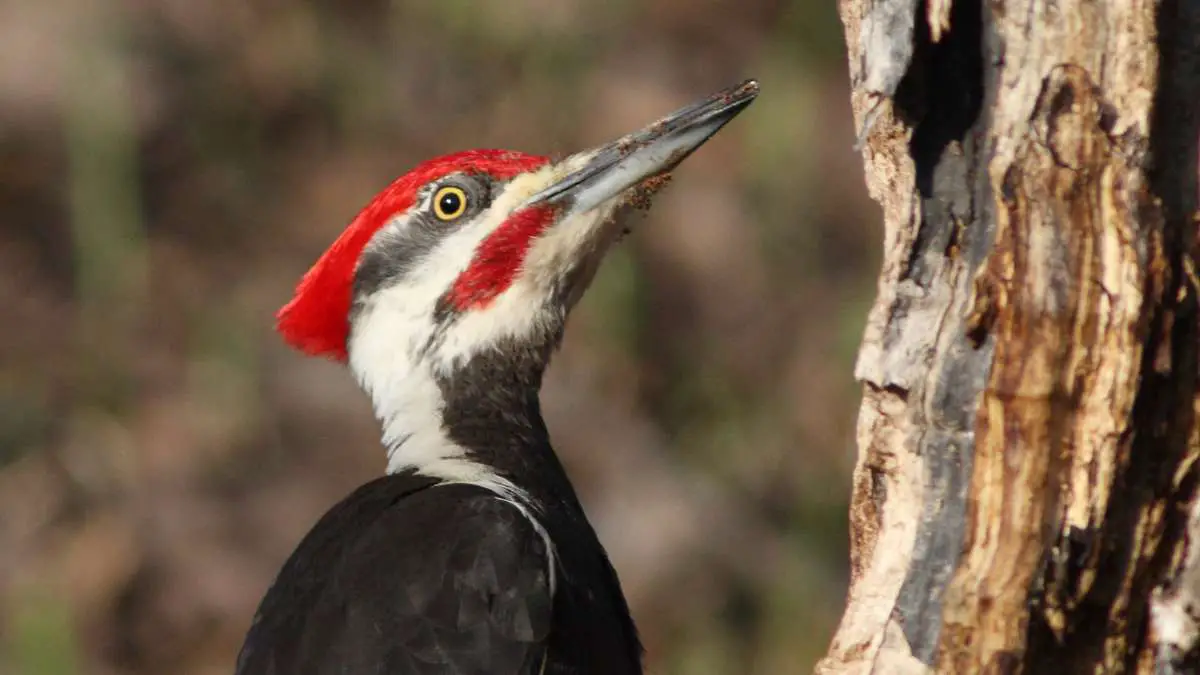Ospreys, these incredible raptors, are generally not a threat to humans. They’re magnificent birds of prey, often seen near water bodies, and have unique habits.
These birds aren’t known for attacking people. In fact, they’re quite reclusive and would rather avoid us. They’re primarily interested in hunting fish, their favorite meal.
There might be rare instances when ospreys feel threatened and might swoop down to protecmt their nest, but this is extreely uncommon. It’s crucial to understand that ospreys aren’t aggressive by nature.
So, let’s explore more about Ospreys to learn about their aggression towards humans.
Understanding Ospreys
Ospreys are a sight to behold. Let’s explore what makes them tick and why they generally don’t pose a threat to humans.
The Species
Ospreys are impressive creatures with distinctive features. Ospreys belong to monotypic genus and even the family is represented only by a single member. So, only one species occurs and we named it as Osprey.
They’re often recognized by their striking appearance. These birds have sharp, curved talons, designed perfectly for snatching fish from the water.
Their white heads and chests, contrasted by dark brown feathers, are quite distinctive. Ospreys are primarily found near water bodies, be it coastal areas, rivers, or lakes. They prefer these locales because it’s where their favorite meal, fish, is in abundance.
Osprey Behavior
Ospreys are skilled hunters, and their hunting technique is nothing short of spectacular. They hover high above the water, scanning with their keen eyes for any signs of fish.
Once they spot their prey, they dive headfirst into the water, often submerging themselves to capture the fish in their strong talons. It’s a breathtaking sight to witness.
When it comes to nesting, ospreys are known for their platform-like nests built high on trees, cliffs, or even man-made structures.
They’re dedicated parents, fiercely protecting their nests during the breeding season. While they might swoop down near their nest if they perceive a threat, actual attacks on humans are extremely rare.
In terms of diet, fish make up the bulk of their meals (~99 %), but they occasionally dine on small mammals and birds. Their hunting prowess and nesting habits showcase their adaptation to a life centered around water bodies.
So, when it comes to the question of whether ospreys attack humans, the answer is typically no.
These birds are more focused on their own survival and raising their young.
Osprey Defense Mechanisms
When ospreys feel threatened, their typical reaction is to resort to warnings and displays rather than aggression. These majestic birds are not naturally inclined to attack people. Instead, they rely on their impressive arsenal of warning signs.
One of their primary warning displays is vocalization. Ospreys are known for their distinctive high-pitched calls.
When they sense a potential threat approaching, they’ll often vocalize loudly. This vocal warning serves to deter intruders, including humans, from getting too close to their nests or territories.
In the rare instances when an osprey feels that its nest or young are in danger, they may perform a “dive-bombing” display. During this display, the osprey may swoop down close to the intruder, often without making contact, to drive them away from the nest.
Rare Human-Osprey Encounters
While ospreys are generally non-threatening to humans, there have been rare documented cases of interactions between these magnificent birds and people.
Documented Cases
One noteworthy case involved an osprey’s nest situated near a hiking trail. Hikers reported that the osprey would occasionally swoop low over the trail, especially during the nesting season.
These close encounters left hikers in awe but unharmed. The osprey’s intent seemed more to protect its nest rather than to harm the hikers.
In another instance, a fisherman found himself near an osprey nest while casting his line. The osprey circled above, seemingly curious about the fishing activity.
And on other occasions some Ospreys have been recorded to be entangled in fishnets while they try to catch the fish in nets. But in most cases fishermen have rescued the bird.
The osprey’s presence was more about observing the potential source of fish than any aggressive behavior.
These encounters highlight the osprey’s curious and protective nature rather than a desire to attack humans.
Ospreys are not naturally aggressive toward people. Instead, they show their remarkable adaptability to the presence of humans, often coexisting peacefully.
Factors Influencing Osprey Behavior
Environmental Factors
One of the key factors influencing osprey behavior is their environment. Ospreys are nature’s fishing champs, and they like to stick to their watery realms. They generally steer clear of humans, focusing on their underwater prey.
Nesting sites play a crucial role in osprey behavior. Ospreys prefer to set up their nests in isolated areas like treetops or platforms near water bodies. So, unless you’re planning a picnic right by their nest, you’re unlikely to encounter any aggression.
Seasonal Variations
Osprey behavior can change with the seasons. During nesting season, usually spring and summer, ospreys are fiercely protective of their nests and young.
They might become more vocal and show defensive behavior if someone gets too close. So, it’s best to keep a respectful distance during this time.
When it’s migration season, these birds are busy preparing for their long journey to warmer climates. They’re more focused on stocking up on food than bothering humans.
So, no need to worry about an osprey dive-bombing you.
Tips for Coexisting with Ospreys
Responsible Behavior
These birds prefer fishing to feuding with us. However, there are some tips to keep in mind for harmonious coexistence.
- Respect Their Space: When you spot an osprey, it’s best to maintain a safe distance. Use binoculars for a close-up view without disturbing them.
- Avoid Nests: Ospreys are protective parents during nesting season. Steer clear of their nests, typically perched high near water. Keep your curiosity in check and let them raise their young in peace.
Nesting Season Precautions
Ospreys get extra protective when it’s nesting season, usually in spring and summer. To minimize conflicts, follow these guidelines:
- Stay Clear of Nesting Sites: Osprey nests are a no-go zone during this time. Maintain a respectful distance, and never attempt to climb or disturb their nests.
- Use Caution in Water Activities: If you enjoy boating or fishing near osprey nesting areas, be mindful not to get too close to their nests. Maintain a buffer zone to ensure a peaceful coexistence.
Conclusion
In conclusion, the question of whether ospreys attack humans is met with a reassuring “no.” These remarkable fish-eating birds are generally peace-loving neighbors in their watery realms.
Understanding ospreys and dispelling misconceptions is crucial. They’re not looking for trouble; they’re looking for fish.
Respecting their space, especially during nesting season, is the key to responsible coexistence.
Let’s remember that ospreys are an integral part of our natural world, and by following a few simple guidelines, we can enjoy their awe-inspiring presence while they go about their business.
Together, we can share this planet with our feathered friends in harmony.





